-
6 mai 2025
Is this autocracy?

“Is this autocracy?” one European journalist asked me a few days ago. “Can we use the word ‘fascism’?” asked another. I’ve been answering the latter question for most of a decade now; and my answer has been yes, we can—with the caveat that I would avoid fetishizing these categories. No historical situation is ever exactly the same as any other. At the present moment, “fascism” has felt most useful with respect to both my own country, the United States, and Russia. It would benefit, though from a modifier—“neo” for instance—to suggest the postmodern, “post-truth” version in distinction to 20th century forms. lire la suite
-
4 mars 2025
“The very definition of tyranny”: Donald Trump’s attempted coup

The flood of authoritarian measures—many, illegal or unconstitutional; others, while legal, nonetheless an assault on political norms of restraint and on progressive political, economic, and social reforms adopted since the New Deal—should not obscure their central aim: the accumulation of all powers that is, an attempted coup d’état to undermine American democracy. lire la suite
-
19 février 2025
Blame it on the trade deficit! Misconceptions about a complex macroeconomic concept
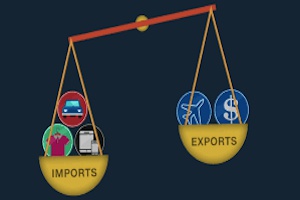
The concept of a trade deficit is often negatively connoted and distorted by approximate, erroneous or contradictory conceptions. It is obviously complicated to explain to a wide public that imports are necessary for the proper functioning of an economy, that a trade deficit can result from a phase of prosperity and that tariffs can only effectively reduce a deficit at the cost of a recession. lire la suite
-
10 janvier 2025
Trump the Second: from the Imperial Presidency to the Imperiled Republic

How dangerous will Donald M. Trump’s second term be? This article claims that he is seeking to undermine the fundamental elements of American government created by the Constitutional Convention in 1787 and poses the greatest threat to America’s republican system of government since the Civil War of 1861-65. lire la suite
-
16 décembre 2024
A President and customs duties: is a major trade conflict imminent?
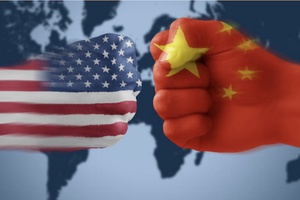
Candidate Trump promised during the 2024 campaign to increase tariffs by 60% on all Chinese products and by 10 to 20% on all products from the rest of the world. Should we expect major commercial conflicts? Or is the social networking fuss just tactical positioning? The potential consequences of the proposed policy provide some useful clues. lire la suite
-
24 juillet 2023
Memorial: War of Memories
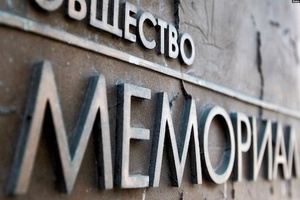
Memorial, Nobel Peace Prize 2022 shared with Ales Bialiatski, Belarusian human rights activist in prison, and the Ukrainian Center for Civil Liberties, has been witnessing since 1991 all the upheavals of civil society in Russia and its former empire. lire la suite
-
4 juillet 2023
Kazakhstan, the imperative to cooperate
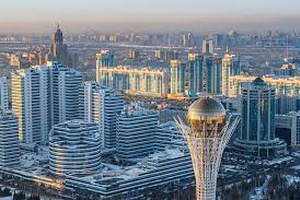
Landlocked in the heart of Central Asia, Kazakhstan is involved in regional partnerships and, pragmatic, claims to be a facilitator with balanced relations, even if the pressure to take a stand between Russia, China and the European Union is strong. This cocktail is the challenge of so-called middle power (or bridge) countries, developing multi-factor diplomacy, here constrained by geography and made possible by the country’s resources. Moreover, the development and identity of the five Central Asian countries are built around the imperative of cooperation, given the geographical position and the small number of citizens (75 million for the five countries). lire la suite
-
19 juillet 2018
Drowning, not waving: the UK and Brexit
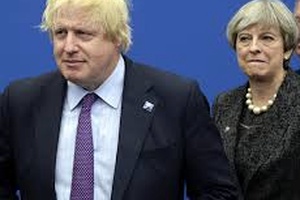
So far Mrs May has been able to hold her party together – there currently seems to be no desire for a leadership challenge from those dissatisfied with her proposals, and there is no readily apparent leader in waiting. A challenge may come later in the year, especially if the government is seen as making any further concessions to the EU. Meanwhile preparations for a No Deal outcome are under consideration. Thus, the British government is not quite drowning and is certainly not waving. But its boat is certainly unstable. lire la suite
-
29 novembre 2011
Is Asia afraid of China?
At the 6th East Asian Summit in Bali on 19th November the Chinese Premier, Wen Jiabao, found himself the butt of almost universal criticism from the leaders of the ten-member Association of Southeast Asian Nations (ASEAN) both for Chinese territorial claims and recent provocative actions in the South China Sea. Supported by the United States as well as India, Australia and Japan, the ASEAN countries insisted on multilateral negotiations over these questions, while the Chinese remained firm on the principle of bilateral solutions in which they would have a distinct asymmetrical advantage. lire la suite
-
26 novembre 2011
Strategic Games around Free Trade Agreements in the Asia-Pacific

Barely a week after the G20 in Cannes, ten of the 20 leaders reconvened half way across the world in Honolulu as part of the annual summit of the Asia-Pacific Economic Cooperation forum (APEC), together with other Pacific Rim leaders. APEC summits are usually quiet and polite affair. This time, however, APEC became the scene of great diplomatic games and one more match in the growing strategic rivalry between China and US. Indeed, the US decided to use APEC as platform for strategic reengagement into Asia and balancing China’s growing dominance. This game may well be the one with the most significance for the future of the world economy. lire la suite
-
31 mars 2011
The Libyan Intervention in the Rear View Mirror

When we look back on the Libyan intervention, will we think of it as another Rwanda, another Somalia, or something else entirely? ‘Rwanda’ reminds us of the shame of inaction, ‘Somalia’ reminds of the costs of poorly executed action, and ‘something else’ stands for the promise of doing the right thing. lire la suite
-
22 septembre 2010
‘Roma crisis’ and EU’s neighborhood

In a spectacular move, France, a founding member State, has been sharply criticized by European MPs over its Roma expulsion policy. Since the beginning of the crisis, President Sarkozy is standing firm on its tough immigration policy, in spite of a wave of criticisms both within France and abroad. Starting as a French issue, it has had an impact on the French-Romanian relations, two traditional allies. At a European level, it may be not without serious implications for a country like Ukraine, which seeks a prospect of integration within the EU. (in French) lire la suite
-
16 septembre 2010
Iraq: US troops leave, violence remains

Since August 31, there are no more U.S. combat forces in Iraq. However the complete drawdown of U.S. troops won't occur before December 2011. In Baghdad, Prime Minister Nuri al-Maliki said he was confident in the ability of Iraq’s new security forces to take the lead, adding that he was delighted by Iraq’s recovery of « its independence and sovereignty. » But does this guarantee the return to stability and the end of violence? This is far from certain. lire la suite
-
16 septembre 2010
Is G20 economic coordination already passé?

Since the G20 leaders first met in Washington in November 2008, much hope has been placed in this new coordination group for the global economy. The G20 summit meeting in London in April 2009 will especially go down in history as the moment when leaders from the world successfully united forces to ward off depression. But times have changed and after a rather disappointing summit meeting in Toronto last June, there are grounds to ask whether international economic coordination among G20 countries is already passé. lire la suite
-
19 juillet 2010
EU economic governance needs more democracy

May 2010 will go down in history as the beginning of greater economic solidarity in the European Union as a result of the one-two punch of the Greek loan agreed on May 3 and the massive loan guarantee mechanism of May 9-10. But what shape that union will take remains unclear. German Chancellor Merkel wants more governance by rules, to enshrine restrictive budgetary discipline and draconian punishments for violators. French President Sarkozy wants more governance by leaders, with Eurozone countries to form a kind of economic government that determines Eurozone policy on an on-going basis. Neither will work, the first because it is too rigid as well as economically problematic, the second because it is too flexible as well as politically problematic. Neither, moreover, is very democratic. lire la suite
-
17 février 2010
When Ukraine meets with China

No wonder that Ukraine remains a country profoundly torn between a pro-West and a pro-East vector, i.e. EU and Russia. Beyond this oft-described black-and-white opposition, the striking geopolitical reality for the coming years may not be the swing toward one or the other pole, but rather the arrival of China as a central player in the EU neighbourhood. lire la suite
-
30 octobre 2008
Not another Bretton Woods

The Washington meeting of the Heads of State to take place shortly reflects recognition of the need for international cooperation in the regulation of financial institutions and markets. There has been international cooperation in recent months, mainly among the major central banks, notably the coordinated interest-rate cuts that took place recently, and the provision of dollar financing by the Federal Reserve to the European Central Bank, which needed dollars to relend to European banks that could not obtain them commercially. lire la suite
-
3 juin 2008
Seismic Change in the Middle Kingdom - and why we should take note

In the wake of the tragic Sichuan earthquake, something big is astir in China. It was not just the earth that shook on this peaceful afternoon of May 12, 2008. Society and political world moved as well. Future historians may well remember this month as a watershed moment. The time has come for us to take note and change course in our understanding of China. This is probably one of the most important tasks in front of us when we map out our future decades. The stakes could not be higher. lire la suite
-
15 février 2008
Normative Empire

On October 25th 2007 the Wall Street Journal published a blistering attack on Europe entitled “Regulatory Imperialism”. The editorial took issue with Europe’s intent to force its norms on the rest of the world by taking advantage of the dynamism of its internal market both affluent and attractive and in addition highly organized. Examples cited included the Microsoft Affair, the ban on the importation of chlorine-rinsed poultry, the Reach legislation on chemical products, as well as the plan to tax airline companies as part of the battle against climate change. lire la suite
-
11 janvier 2007
Europe Needs Policies on Russia and Energy
A year ago, the European Union was at a loss when Russia cut gas supplies to Europe through Ukraine and thus to Europe. Exactly one year later, Russia cuts oil supplies to Europe through Belarus, and the EU is equally lost. Seldom haws Russia so clearly displayed its principles. It is time for the EU to adopt policies on both Russia and energy. Otherwise, the cost of Europe's disorientation may grow exponentially. -->Russia is a market economy, and even its state sector is highly commercialized. In the last few years, the Kremlin has successfully focused on boosting the price of Gazprom stocks, rendering it the third most valuable publicly traded company in the world. Part of this endeavor has been to abolish political subsidies to friendly former Soviet republics and let gas and oil prices approach market prices. Belarus was the last country to enjoy oil subsidies from Russia, and now they are gone. lire la suite
-
Page 1 sur 2 1 2
